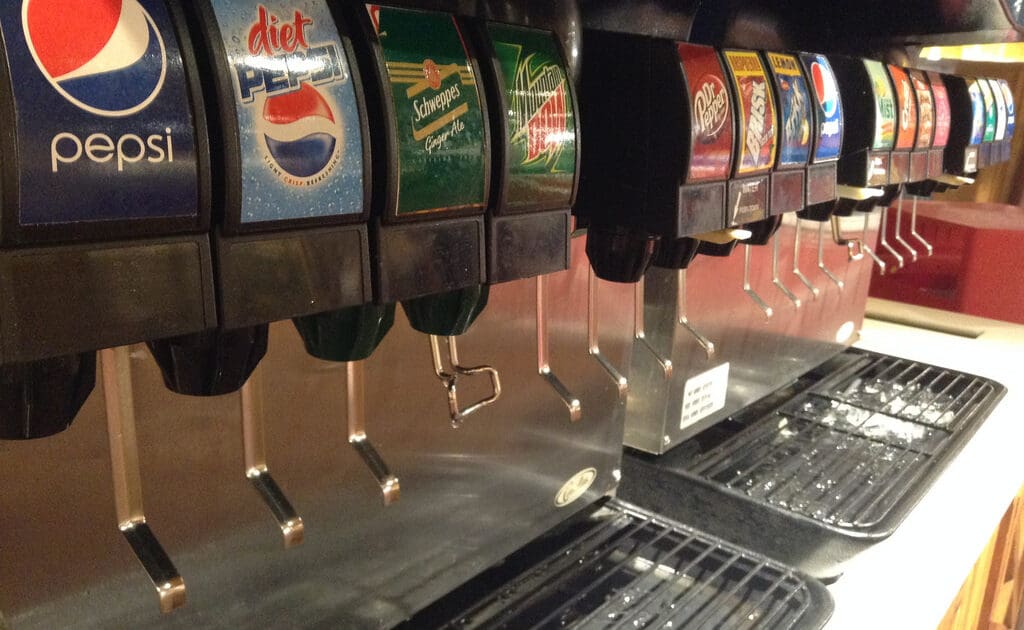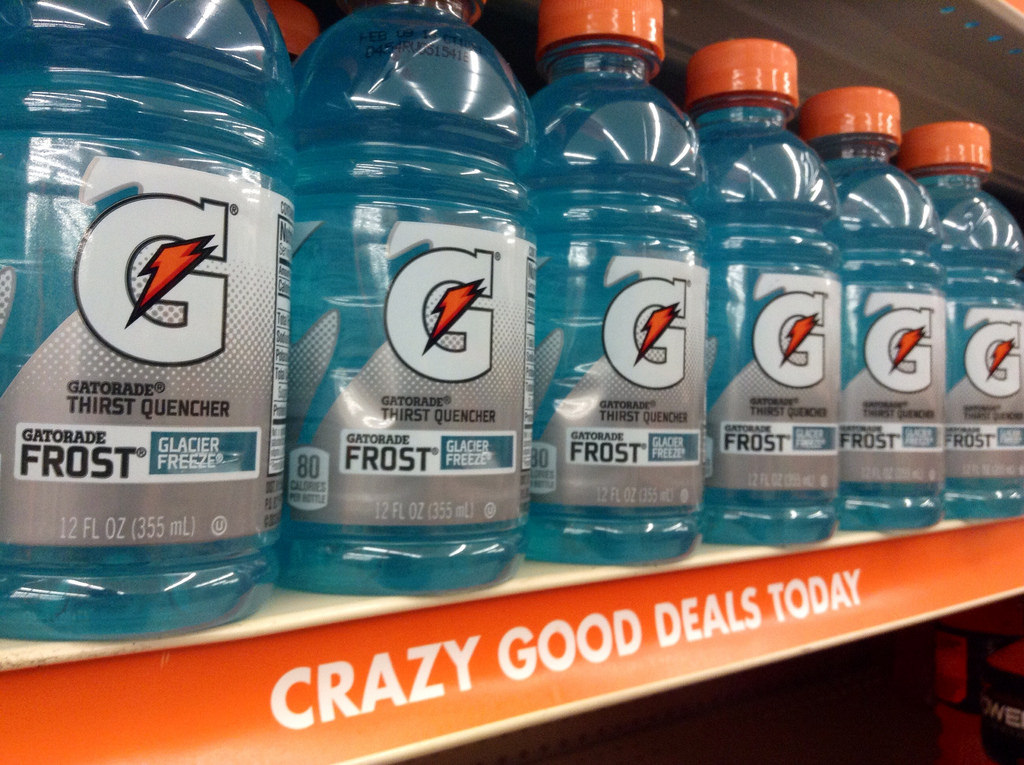Can PepsiCo Really Be the New Face of Healthy Beverages?

PepsiCo, like its competitors in the sugary beverage category, is struggling. Sales for the category continue to drop as consumers seek out healthier options, or avoid soft drinks all together.
Now, Pepsi says it’s turning its attention toward producing healthier products, going for the health-conscious consumer by launching an organic Gatorade, the company’s popular sports drink.
“It’s a consumer interest,” Al Carey, CEO of PepsiCo Americas Beverages, told the audience at the recent Beverage Digest’s Future Smarts conference in New York City. “I think they’re very interested in non-GMO and organic, and to the degree you can make it meaningful to the consumer — do it.”
The Gatorade announcement comes after the company also unveiled plans to launch “Hello Goodness” vending machines that will feature less of Pepsi’s sugary stuff and more of its other offerings like Naked Juice, Pure Leaf iced tea, and lower calorie snack items like Lay’s Oven Baked Potato Chips. And the company’s Tropicana brand of juices will soon bear the Non-GMO Project’s verified label, a move some say is deceitful not only because there are not currently any genetically engineered oranges on the market, but because of the company’s efforts to thwart GMO labeling initiatives in the U.S.
“PepsiCo is being completely disingenuous by choosing to label a handful of products ‘GMO free’ while refusing to let consumers know which of its other products contain GMOs,” Gary Hirshberg, Chairman of Just Label It, a campaign dedicated to GMO labeling, told FoxBusiness.com.
Despite PepsiCo’s move to verify Tropicana, the company has contributed millions of dollars to oppose GMO labeling campaigns around the country, spending $9 million in just the past two years to battle state GMO labeling laws, and another $11 million to lobby Congress to oppose GMO labeling.
While the move may rub people like Hirshberg wrong—he’s also the co-founder of Stonyfield Yogurt, the top-selling brand of organic yogurt—for the conventional grocery shopper, these moves may be a welcome change.
Earlier this month, the Campbell Soup Company said it too had a change of heart on the GMO labeling issue and it will start to label its products whether or not federal or state GMO labeling laws are in effect. The move earned the company praises from groups including Just Label It, and many hope it will encourage other brands to fully disclose whether or not their products contain genetically engineered ingredients.

But is it enough to save Big Soda’s second-best selling brand?
“Over the last 20 years, sales of full-calorie soda in the United States have plummeted by more than 25 percent,” reports the New York Times. “Soda consumption, which rocketed from the 1960s through 1990s, is now experiencing a serious and sustained decline.”
Some have likened the soda industry to Big Tobacco—desperate to maintain customers despite the mounting evidence that sugary-sweetened—and even artificially sweetened—beverages offer no health benefits, and rather, lead to serious health issues including obesity and type 2 diabetes.
“There will always be soda, but I think the era of it being acceptable for kids to drink soda all day long is passing, slowly,” Marion Nestle, a professor of nutrition at New York University, told the Times.
While cigarettes still exist—and people do smoke them despite the links to heart disease and cancer—the tobacco industry has been crippled by regulations that ban ads, taxes that make cigarettes expensive, and even a lack of support from retailers like CVS, which announced in 2014 that it would stop selling cigarettes.
So, is Big Soda next?
While Berkeley, Calif., is the only city to currently have a soda tax in place, experts like Nestle say it may just be a matter of time. “In some socioeconomic groups, it’s over,” she said. Even in poorer neighborhoods where soda and junk food has long been widely available—more accessible than fresh fruits and vegetables. But that too is changing as supermarkets and farmers markets are being incentivized to support these communities and stores like 7-Eleven are stocking healthier options than in years past.
The real problem for PepsiCo though, is in securing its lifelong customers. “Historically, beverage preferences are set in adolescence, the first time that most people begin choosing and buying a favorite brand,” reports the Times. “But the declines in soda drinking appear to be sharpest among young Americans,” a sign that—organic or not—a taste for healthier products is showing no sign of losing its fizz.
Find Jill on Twitter and Instagram
Related on Organic Authority
Can Craft Sodas Revive PepsiCo’s Slumping Sales?
‘Diet’ Claim on Diet Sodas is ‘Deceptive, False and Misleading,’ Consumer Group Says
Diet Soda Linked to a Bigger Gut, Study Finds
images: JeepersMedia

